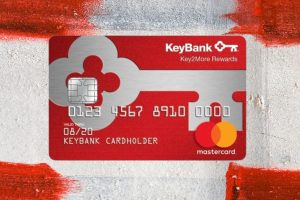Moving to the United States opens doors to many opportunities, but it also comes with challenges—one of which is building a credit profile from scratch. A strong credit profile is essential for securing loans, renting apartments, and even getting better job offers. If you’re a recent immigrant wondering where to start, this guide is for you.
Why Does a Credit Profile Matter in the U.S.?

Unlike in some countries where cash transactions are common, the U.S. relies heavily on credit for financial assessments. Your credit score, derived from your credit profile, is essentially a snapshot of your financial trustworthiness.
Benefits of a Strong Credit Profile:
Easier Approval for Credit Cards and Loans
A strong credit profile increases your chances of getting approved for credit cards and loans. Lenders and credit card issuers want to minimize risk, and a solid credit history indicates that you’re responsible with borrowed money. This means you can qualify for higher credit limits and a broader range of financial products, from personal loans to mortgages, with less hassle.
Access to Lower Interest Rates
One of the most significant advantages of a strong credit score is access to lower interest rates. When you have a high credit score, lenders see you as a low-risk borrower, which allows them to offer you more favorable terms. This means paying less in interest over time on loans or credit card balances, which can save you thousands of dollars in the long run.
Better Rental Opportunities
Many landlords in the U.S. conduct credit checks before agreeing to a rental contract. A strong credit score signals to them that you’re likely to pay your rent on time, making it easier to secure rental housing. In competitive rental markets, your credit history could be the deciding factor in being approved for an apartment.
Increased Financial Independence
A solid credit profile gives you more financial independence. With access to credit, you can handle emergencies, make larger purchases, or even finance investments without relying solely on savings. This flexibility allows you to take control of your financial decisions and plan for the future, all while managing your financial obligations responsibly.
In summary, building a strong credit profile in the U.S. is an investment in your financial well-being. It not only helps you secure better financial products but also enhances your ability to navigate life’s opportunities with greater ease and confidence.
Step 1: Understand the U.S. Credit System
Before diving into building your credit, it’s crucial to understand how the system works. The key components of a credit profile include:
| Factor | Impact on Score |
| Payment History | 35% (Timely payments are critical) |
| Credit Utilization | 30% (Low balances are better) |
| Length of Credit History | 15% (Consistency over time) |
| Credit Mix | 10% (Diverse accounts help) |
| New Credit Inquiries | 10% (Frequent applications lower score temporarily) |
This breakdown highlights the importance of starting early and managing your accounts responsibly.
Step 2: Obtain an Individual Taxpayer Identification Number (ITIN)
For those who aren’t eligible for a Social Security Number (SSN), obtaining an Individual Taxpayer Identification Number (ITIN) is the first step in building credit in the U.S. This number is crucial because it allows you to open financial accounts, file taxes, and access a variety of credit products—key steps in establishing your financial credibility.
Without an ITIN, you’ll have a hard time starting the process of building credit. It’s important to take care of this early on, as it will be a gateway to managing your finances and building a positive credit history.
How to Get an ITIN:
- Fill out IRS Form W-7 with your personal details.
- Submit the form along with required documents like your passport.
- File it with your tax return or via an IRS-authorized agent.
Step 3: Open a Bank Account
Opening a checking or savings account is an important step in the U.S. financial system, even though it doesn’t directly impact your credit score. Having a bank account shows you’re financially responsible and creates a financial footprint that will be helpful when applying for credit. It also makes it easier to manage your finances and access credit products when the time comes.
Example:
Ana recently moved to the U.S. and immediately opened a checking account with her ITIN and passport. This small step was crucial for her, as it allowed her to start paying bills, manage her savings, and establish a relationship with the bank that would eventually help her access credit. It also helped her avoid carrying cash, making it easier to track her expenses.
Tips for Success:
- Look for banks with immigrant-friendly services or low-fee accounts.
- Always have your passport or ITIN ready when opening the account.
- Avoid overdrafts to maintain a good standing with your bank.
Step 4: Start with a Secured Credit Card

Once you’ve opened a bank account, the next step is to apply for a secured credit card. A secured credit card is one of the best tools to build credit from scratch. Unlike traditional credit cards, it requires a refundable security deposit, which acts as your credit limit. The beauty of a secured card is that it allows you to build a credit history without taking on too much risk.
Popular Secured Cards: Capital One Platinum Secured Card or Discover it Secured Card (with cashback rewards)
Step 5: Become an Authorized User
Another great strategy for building credit is to become an authorized user on someone else’s credit card account. If you have family or close friends in the U.S. with a strong credit history, you can ask to be added to their account as an authorized user. As an authorized user, their positive payment history will be reported to the credit bureaus and reflected on your credit report, helping you build your own credit.
What Does This Mean for You?
By being added as an authorized user, you benefit from the primary cardholder’s responsible credit use. Their on-time payments and low credit utilization will help boost your credit score without requiring you to make payments or use the card.
Step 6: Apply for Credit Builder Loans
A credit builder loan is a specific type of loan designed to help individuals establish or rebuild credit. What sets this loan apart is that the money you “borrow” is held in a savings account until the loan is fully repaid. It’s essentially a forced savings plan that helps you build credit while you save.
Here’s how it works:
- You apply for the loan and borrow a set amount (e.g., $500).
- The money is held in a savings account by the lender.
- You make monthly payments toward the loan, which are reported to credit bureaus.
- Once you’ve fully paid off the loan, the money is returned to you.
Credit builder loans are available through many credit unions and online services like Self.
Step 7: Monitor Your Credit Progress
Finally, staying on top of your credit progress is essential. Regularly checking your credit report ensures that everything is accurate and helps you catch any discrepancies that might harm your score. It also allows you to track your progress over time.
Real-Life Scenario: Juan’s Journey to Building Credit
Juan, a recent immigrant from Mexico, arrived in the United States with no credit history, which is a common situation for newcomers. He quickly realized how important a strong credit profile was for securing better financial opportunities. Determined to build his credit from the ground up, Juan followed a strategic plan that allowed him to establish a solid credit score in just one year. Here’s how he did it:
Opened a Secured Credit Card
Juan’s first move was to apply for a secured credit card with a deposit of $300. Secured cards are a great way to start building credit, especially for someone with no prior credit history. The deposit acted as his credit limit, so it was a low-risk option for both Juan and the bank.
Juan used the card for small, manageable purchases, like groceries and gas, to keep his balance low. He made sure to pay off the entire balance each month, ensuring that his credit utilization remained below 30% (which is ideal for maintaining a healthy credit score).
Outcome: By the end of the first few months, Juan had begun building a positive payment history, which is one of the most significant factors in determining his credit score.
Became an Authorized User
The next step in Juan’s plan was to take advantage of his family’s strong credit history. He reached out to his cousin, who had a solid credit score and a good track record of paying bills on time. Juan asked his cousin if he could become an authorized user on his credit card account.
As an authorized user, Juan didn’t need to make payments or even use the card. Instead, he was able to piggyback on his cousin’s positive payment history, which helped build his credit profile even faster.
Took Out a Credit Builder Loan
Knowing that he needed more diversity in his credit mix to improve his profile further, Juan decided to apply for a credit builder loan through a local credit union. A credit builder loan is a unique type of loan designed to help people establish or rebuild credit. The loan amount was $500, which the credit union deposited into a savings account in his name.
Each month, Juan made timely payments toward the loan. Once he paid off the loan, he received the full amount back—while at the same time having built a strong, positive payment history.
Stayed On Top of Payments
Throughout the year, Juan made sure that all his bills—credit card payments, utility bills, and his loan payments—were paid on time. He set up reminders to avoid missing due dates, and whenever possible, he paid his bills early. This habit was crucial, as payment history makes up 35% of a person’s credit score.
The Results
After 12 months of disciplined financial behavior, Juan checked his credit score. It had soared to 720, a respectable score that put him in a great position to apply for other credit products with favorable interest rates. With this score, he was also able to secure a car loan with a low interest rate and was approved for an apartment rental without the need for a co-signer.
Juan’s Credit Profile After One Year:
- Credit Score: 720
- Credit History: One secured credit card, one authorized user account, one credit builder loan
- Payment History: Flawless (no late payments)
By following these steps, Juan was able to create a solid financial foundation that opened doors to better financial opportunities in the U.S. Now, he’s not only building his credit but also planning for his future, knowing that his good credit score will help him achieve his financial goals.
Mistakes to Avoid When Building Your Credit
1. Missing Payments
Late or missed payments can seriously harm your credit score. Even one missed payment can remain on your report for up to seven years, making it difficult to recover. To avoid this, set reminders or automate your payments to ensure they’re always on time.
2. Using Too Much Credit
Excessive credit utilization—using more than 30% of your available credit—can negatively impact your credit score. Keep your balances low and pay them off quickly to maintain a healthy utilization ratio and improve your score over time.
3. Closing Old Accounts
It may seem tempting to close old, unused accounts, but doing so can hurt your credit score. Older accounts help lengthen your credit history, which accounts for 15% of your score. Keeping these accounts open, even if you don’t use them, can benefit your overall credit profile.
By avoiding these common mistakes, you’ll be well on your way to building a strong credit score and ensuring financial success.
Your Credit Journey Starts Today

Building a strong credit profile is a crucial step toward financial success in the U.S. Whether you’re a newcomer or someone looking to improve your credit, the process of establishing a good credit history takes time, but it is well worth the effort. With a solid credit profile, you gain access to lower interest rates, better rental opportunities, and the financial independence needed to make important life decisions.
In today’s financial landscape, your credit score plays a pivotal role in shaping your future. By staying disciplined and proactive in managing your finances, you can achieve a strong credit profile and set yourself up for a lifetime of financial success and security.










